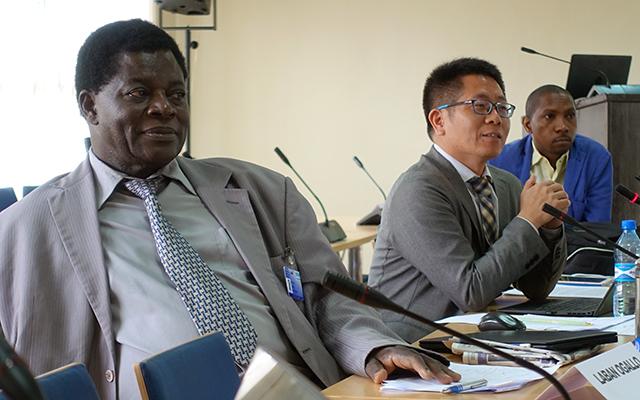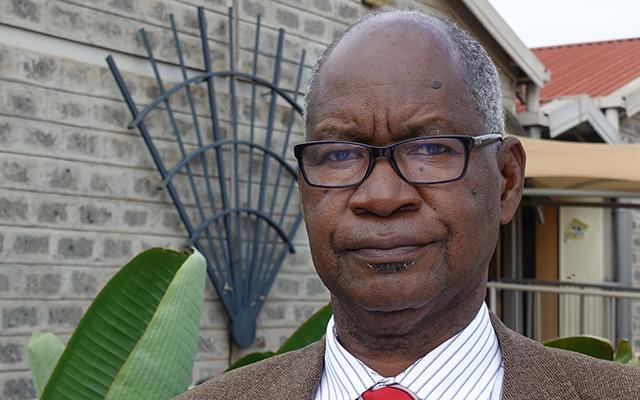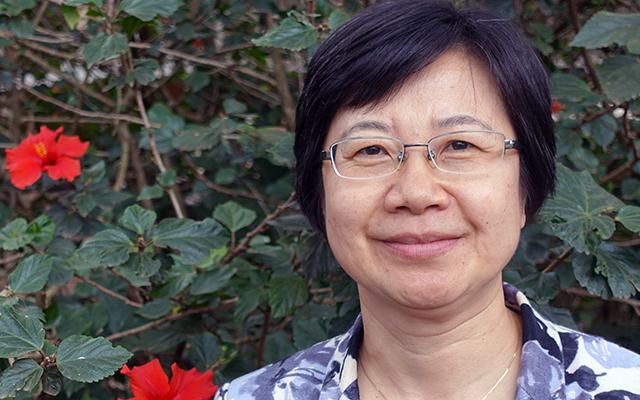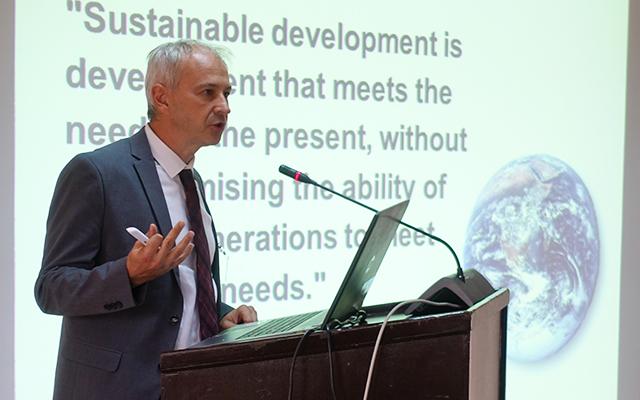Nairobi, Kenya – High-level researchers and policy leaders from Africa and China pledged support for long-term cooperation in research focused on the nexus of climate, ecosystems and livelihoods following a two-day conference here.
The Nairobi Communiqué, released today, is promoting China-Africa science cooperation and integrated approaches to address African challenges in achieving the UN Sustainable Development Goals (SDGs) and the Paris Agreement on climate change. It proposes a two-year pilot programme that tracks the decade-long Climate, Ecosystems and Livelihoods flagship programme announced by UN Environment in November 2016 with support from the government of China.
The statement was produced after a two-day conference organised by the UN Environment International Ecosystem Management Partnership (UNEP-IEMP). It was sponsored by UN Environment, the Chinese Academy of Sciences (CAS), the National Natural Sciences Foundation of China (NSFC), and The World Academy of Sciences (TWAS).
"Climate change is...commonly recognised as a major issue and has the potential to compromise food security and livelihoods in this entire region," said Judy Wakhungu, cabinet secretary for environment and regional authorities in Kenya, at the conference opening ceremony. "We look forward to continued cooperation with the Chinese government and other partners in the field of green development through the sharing of knowledge, technology and expertise for sustainable development."
Read the full text of the Nairobi Communiqué.
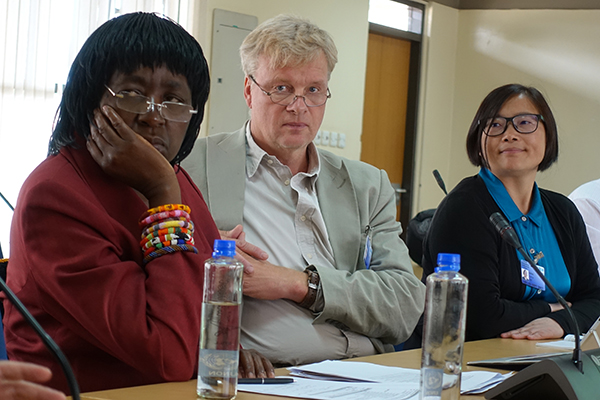 Ibrahim Thiaw, deputy executive director of UN Environment, called the conference "simply remarkable" and said it placed Chinese and African scientists "at the forefront" of global efforts to achieve the SDGs and the Paris Agreement. And, he told the scientists: "We are very much looking forward to your inspiration and action to help millions of people manage their livelihoods through the sustainable management of ecosystems."
Ibrahim Thiaw, deputy executive director of UN Environment, called the conference "simply remarkable" and said it placed Chinese and African scientists "at the forefront" of global efforts to achieve the SDGs and the Paris Agreement. And, he told the scientists: "We are very much looking forward to your inspiration and action to help millions of people manage their livelihoods through the sustainable management of ecosystems."
Chinese participants who attended the conference said it reflected the mission established in the Belt and Road Initiative advanced by Chinese President Xi Jinping.
President Xi has "emphasised repeatedly the Chinese government's commitment to build the green belt and road for the betterment of global humanity, creating what he called 'the community of global shared interests'," said Cao Jinghua, director general of the CAS Bureau of International Cooperation. "CAS has given particular attention to extending cooperation with the developing countries, including Africa."
"The Belt and Road Initiative will bring emerging opportunities for Chinese scientists to work with Africa scientists, and with UN Environment, in the area of sustainable development," said Feng Feng, director general of the NSFC Bureau of International Cooperation, in opening remarks at the conference.
The Conference on Climate, Ecosystems and Livelihoods for Africa was convened 4-5 September 2017 at UN Environment headquarters in Nairobi, Kenya. The conference was attended by 70 scientists and policy leaders from 10 African nations and China, representing 40 national and international organizations. TWAS was represented by six Fellows, two Young Affiliates, and two professional staff members.
The overall goal was to strengthen the Africa-China partnership for cooperation in researching issues at the nexus of climate, ecosystems and livelihoods (CEL) issues in Africa. More specifically, the organizers sought to identify challenges related to the SDGs targets and the Paris Agreement; share experiences in research and practices to adapt to climate variability and change; and develop a roadmap for future collaborative activities.
According to the Nairobi Communiqué, the China-Africa partnership would complete the pilot phase and then continue in alignment with UN Environment's CEL flagship programme, from 2016 to 2025. It would create a standing mechanism under which UN Environment would provide a platform to support future China-Africa cooperation on climate, ecosystems and livelihoods.
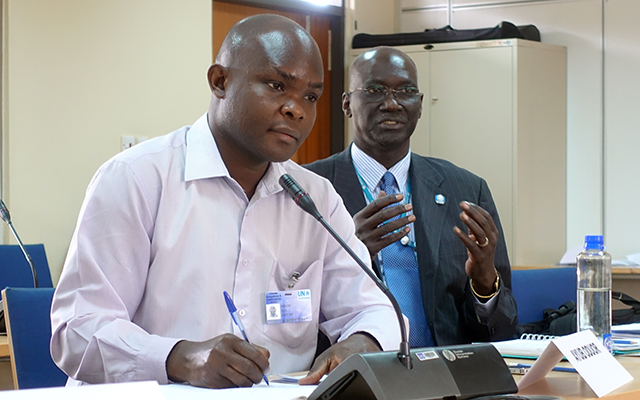 The conference was shaped by a fundamental concept: There is a complex interplay between climate, ecosystems and human livelihoods. For example, climate change can damage ecosystems, which can in turn undercut farm productivity, which can in turn jeopardize food and water security or compromise health.
The conference was shaped by a fundamental concept: There is a complex interplay between climate, ecosystems and human livelihoods. For example, climate change can damage ecosystems, which can in turn undercut farm productivity, which can in turn jeopardize food and water security or compromise health.
Wakhungu told participants that the confluence of ecological, political and sociological stresses make Africa deeply vulnerable to the changing climate and limits its ability to respond effectively. For example, she said, two years of drought, resulting in widespread crop failure, have put 2.6 million Kenyans at risk. Other speakers described the threat to Africa posed by warming temperatures, stronger storms, expanding malaria zones and rising seas.
One key area of focus emerged from discussion at the conference: the urgent need for long-term education and training initiatives to build a stronger corps of African researchers.
"There is a need for scientists who are expert in climate and environmental issues – who can teach students, work with international research teams, contribute to good policy, and provide expertise for the private sector," said Edward Lempinen, the TWAS public information officer. "But we must develop scientists and engineers across every field. Tropical diseases, nanotechnology, space science and social sciences – all of these fields and many others have direct relevance to climate and environmental challenges."
The Belt and Road Initiative, announced by President Xi in 2013, is a unified framework for development and cooperation in a region that spans from Asia to Europe and Africa, and their contiguous oceans and seas, with human population numbering in the billions. The initiative has drawn support from over 100 countries, and already has led to establishment of funding mechanisms to support shared development projects in the region.
In interviews, TWAS Fellows and others who participated in the conference saw a range of potential benefits: advancing scientific knowledge in a way that can benefit both sides of the partnership, while advancing capacity in Africa for research and science education.
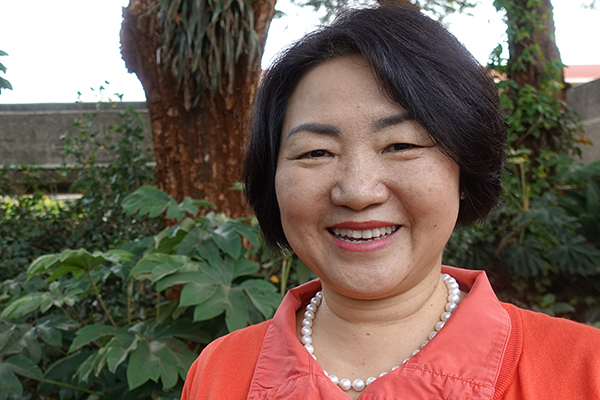 Chinese social scientist Linxiu Zhang, a 2014 TWAS Fellow who helped to organise the conference, saw great value in the "nexus approach" that explores the complex interaction between climate change, ecosystems and human livelihoods. Among global research focused on Africa, only a small percentage has such perspective, she said.
Chinese social scientist Linxiu Zhang, a 2014 TWAS Fellow who helped to organise the conference, saw great value in the "nexus approach" that explores the complex interaction between climate change, ecosystems and human livelihoods. Among global research focused on Africa, only a small percentage has such perspective, she said.
"There's a huge gap there," Zhang said, "but there's a high demand for synergies, for an integrated approach. That's brought us to this focus on cooperation." When UN Environment held many rounds of consultation last year with scientists and institutions both in China and other developing countries, she added, Africa emerged as the strategic focus.
"Africa is in great need of support," she explained. "Not only in capacity, but in methodologies and technology transfer for adapting to climate change, whether through better management of ecosystems or finding new solutions for addressing the livelihood needs."
TWAS Fellow E. Salif Diop, the former head of the Ecosystems Section in UN Environment's Division of Early Warning and Assessment in Nairobi, was another leading voice at the conference. He suggested that Africa has much to learn from China's path of development over the past several decades.
"Past experiences and lessons learned by China in the areas of STI and R&D are so crucial to fully consider at the eve of this new initiative of closer cooperation and collaboration between China and Africa," said Diop, now a professor at Cheikh Anta Diop University in Dakar, Senegal. He said the communiqué shows the way to a "long-term programme that needs to be implemented for the sake of Africa's continued development".
China and Africa already have a robust partnership, and that's evident at the University of Chinese Academy of Sciences (UCAS), said Wang Yanfen, the university's vice president. UCAS already has more than 1,000 international students in its master's and PhD programmes, about a quarter of them from Africa.
"I do think this university has a mission and a vision to offer: serving as a bridge to link China and the world, including Africa," she said.
Wang, an ecosystems researcher, sees a crucial role for education and training initiatives in the new Africa-China partnership on climate, ecosystems and livelihoods. The goals of sustainable development are focused on a healthy future, she said. And if the partnership is to be successful, it has to focus on the future, too.
For this reason, she said, "the young generation is always going to be important for us."


